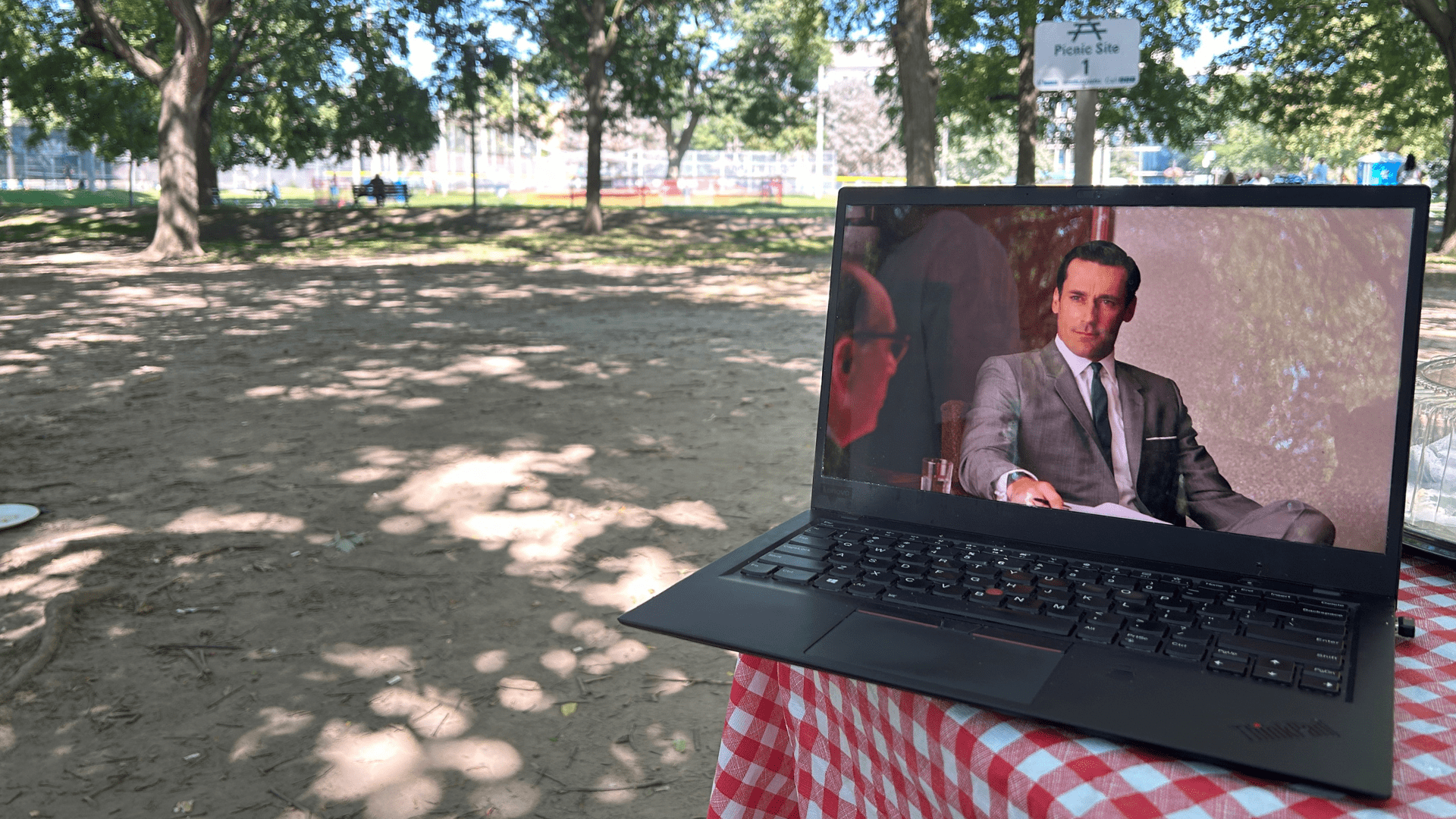My path to finding professional fulfillment

Posted on: Wednesday Aug 23rd 2023
Article by: Shihan Liu
ARTICLE BY SHIHAN LIU
When people ask me what motivated me to transition from advertising to research, I usually say I was simply trying to be true to myself: looking for a role that felt right.
While studying communications and media at university, where almost everything was theoretically driven, I found my passion for social science and research. However, when I first completed graduate school, like many other new grads, I wanted to explore. I decided to switch gears and try something outside of research. Advertising seemed like a relevant, approachable, and fun choice back then. I can’t deny that the TV series
Mad Man
influenced my decision. Donald Draper is sneaky.
My job at the agency was media planning and buying: placing ads on media channels that fit each campaign best – including giving our clients the most bang for their advertising buck. This is a complex task, involving a bit of everything: research, storytelling, execution, and a considerable amount of finance (not an area I enjoyed). The gap between this work and my previous studies – which tended toward Marx, Freud, and critiquing the negative impacts of advertising on society – was huge. I had to learn everything about my new job on the fly. Although I enjoyed learning the practical skills, I was increasingly sure that advertising wasn’t for me. It took some courage to admit this to myself. I didn’t want to be a quitter. The insight came when I found myself shopping around for PhD programs I wasn’t really interested in; I realized I didn’t want more school, I just wanted more fulfillment from my work.
I soon found that fulfilment in market research, which merges my passion for research and my borderline nerdiness with the business world. As an industry, it strikes a balance in the dynamic between critical thinking and problem solving. The goal is to help clients understand the underlying issues rather than mainly “sell” our solutions. Joining the Public Affairs team at Environics is an especially good fit, allowing me to dig into the pressing social issues that I’m most curious about. My parents are delighted to know that my exorbitant international student tuition fees didn’t go to waste; they’ve set me on a path not only to real-world employment, but even to professional satisfaction.
My time at Environics has brought plenty of opportunities for learning – and sometimes that learning has come through tackling challenges. Learning how to fish for an interesting story in a sea of data – and then tell that story clearly and cohesively – has been my biggest challenge. For example, when I worked on a proposal for a potential client in the transportation sector, my task was to create a story to show the client that we understood their goals, and we were the best company to help them achieve those goals. My sea of data was all the previous projects Environics had completed that might be persuasive examples. I also needed to speak the language of proposal writing – a new one for me – to piece everything together. The process felt like a roller coaster. When I finished my first draft, I was up – thrilled that I’d completed the task (although uncertain how colleagues would receive it). When I received more constructive criticism than I’d expected, I was down, filled with self-doubt and facing a daunting new phase of work. In the end, the process was intensely rewarding. I persevered and kept learning every step of the way. In particular, I learned that everything in the story a proposal tells needs to serve a purpose – from the structure to the tone to how a complicated methodology is framed. It should all work together seamlessly to create a flow. That said, I’m sure this won’t be my last time riding the roller coaster as I still have a long way to go and lots to learn. For now, my feet are on the ground again, ready for another heart-pounding ride.
Although I’m happy about my transition from advertising to research – and grateful for all the help and mentorship I received along the way – I have no regrets about my experience working in advertising. Advertising helped me develop a workplace mindset totally different from the one I had in school.
I learned to solve problems methodically and have a can-do attitude to every new piece of work. This mindset will be valuable no matter what I do in life.
What advice would I give to young professionals considering a transition to market research? I’m not an expert in career development, but I can speak to my own experience as someone who felt I’d chosen the wrong starting point – and can maybe offer help to other early-career folks in a similar situation. If you are not satisfied with your current job, no matter how stable it is or how good it looks on paper, it is not for you. You may not know exactly what you want to do next, but you can start by reflecting on your strengths and sources of fulfillment. And then, you can narrow down your path by actively searching for jobs. Work doesn’t have to be the calling of our life. But there’s no need to stay in a field that feels like it’s not right. I wish for every young professional the experience I’ve had: being able to say, “It was a good day,” as they conclude each day, and feeling motivated to get up and do it again the next morning.
Tags:





